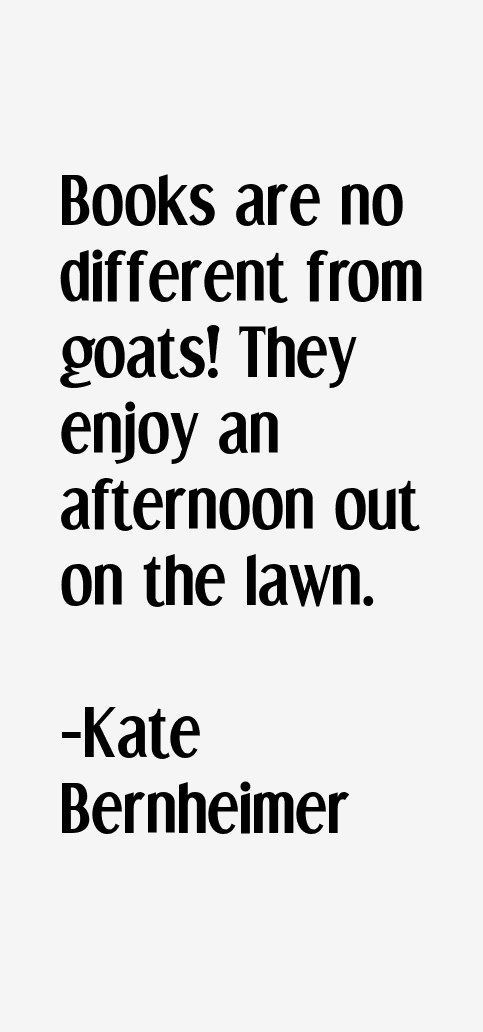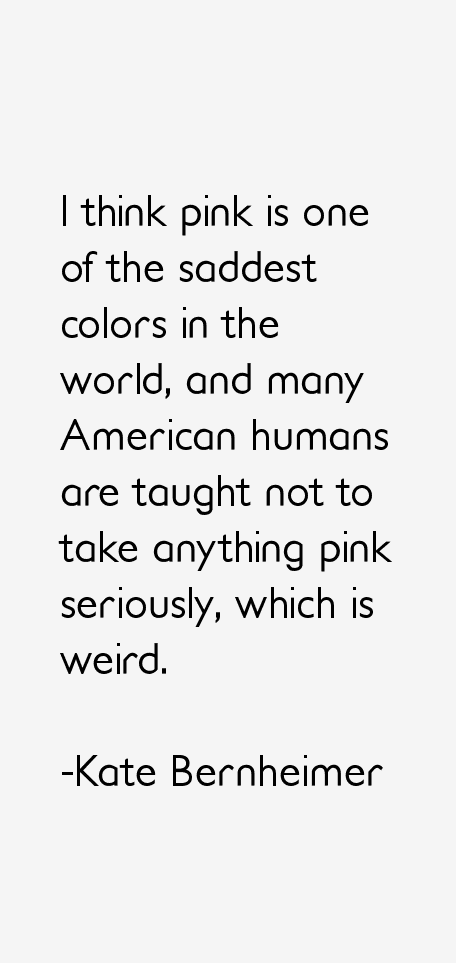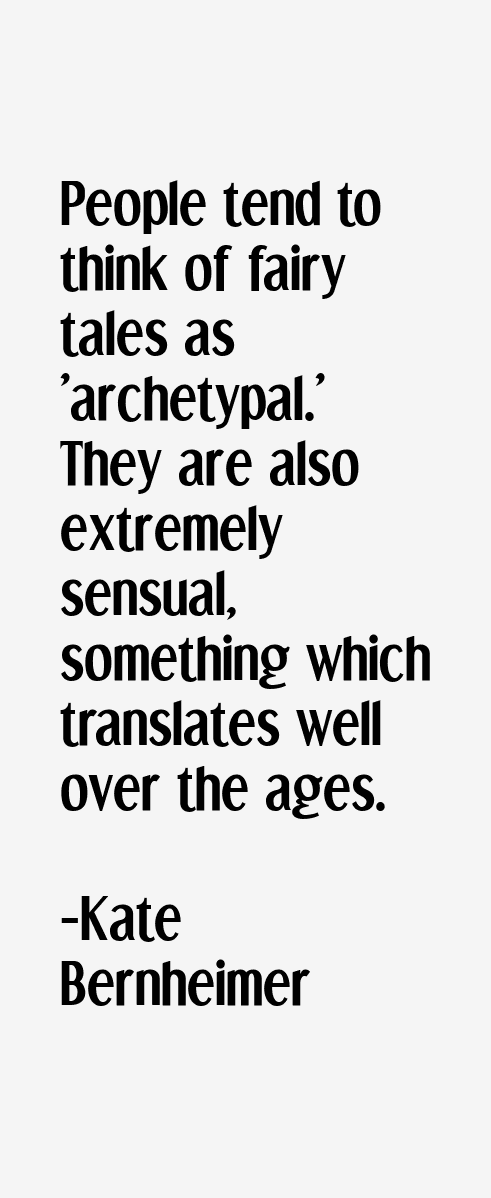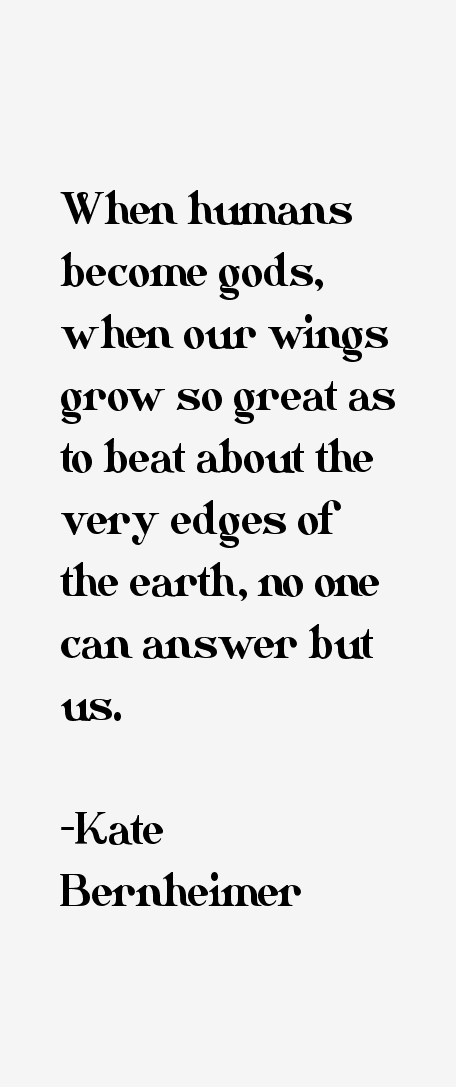Kate Bernheimer Quotes & Sayings
18 most famous Kate Bernheimer quotes and sayings (writer). These are the first 10 quotes we have.

“Books are no different from goats! They enjoy an afternoon out on the lawn.”

“I think pink is one of the saddest colors in the world, and many American humans are taught not to take anything pink seriously, which is weird.”

“People tend to think of fairy tales as 'archetypal.' They are also extremely sensual, something which translates well over the ages.”

“When humans become gods, when our wings grow so great as to beat about the very edges of the earth, no one can answer but us.”
“As a reader, coming to my reading as a writer immersed in fairytales, I can't help but notice in so many stories, plays, poems that I read, the sort of breadcrumbs of fairytale techniques, so I'm very excited when I notice that.”
“As I read more and more fairy tales as an adult, I found massive collusion between their 'subjects' and those in my fiction: childhood, nature, sexuality, transformation. I realized that it wasn't by accident that I was drawn to their narrative structure and motifs.”
“As scientists have discovered - or perhaps explained is a better word, or perhaps identified - we now live in the age of the Anthropocene. The geologic age of the Anthropocene. Those high priests of material evidence have given us our own epoch like the Holocene, the Pleistocene! Apparently we now, it seems, have superhuman powers.”
“I have been writing fairy tales for as long as I can remember. Not much has changed in terms of my natural attraction to the narrative techniques of fairy tales. My appreciation of them in the traditional stories has deepened, especially of flat and unadorned language, intuitive logic, abstraction, and everyday magic.”

“I love the idea of the 'vignette,' which is associated with the decorative, illustrative, small, and thus with the feminine, and thus easily maligned. I mean, Emily Dickinson wrote vignettes, right?”
“I often visit Maria Tatar's 'The Grimm Reader' for a cold dose of courage. Her translations come from the Brothers Grimm, whose now-famous collection of 'Kinder- und Hausmarchen' ('Children's and Household Tales') was first published in 1812. The book was not intended for young readers.”
Kate Bernheimer Quotes Rating
No Ratings Yet
Leave A Comment
























